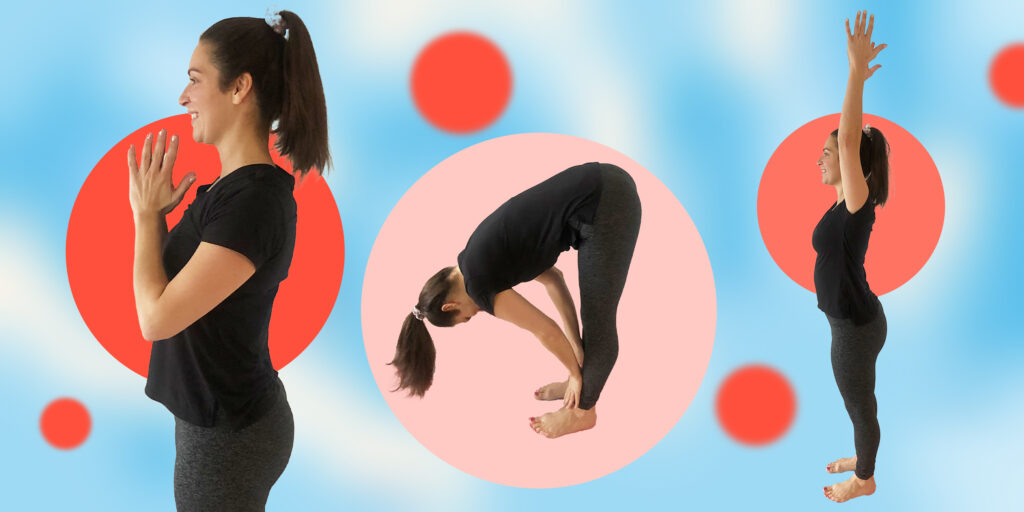Mental health is an essential aspect of overall wellbeing. It is the state of emotional, psychological, and social well-being. Good mental health allows people to handle the daily stresses of life, work productively, and make meaningful contributions to their communities. However, mental health problems such as anxiety, depression, and stress are on the rise, and people are seeking alternative treatments to manage them. Yoga is one such alternative treatment that has gained popularity in recent years. In this article, we will explore the benefits of yoga for mental health and how it can help in managing mental health issues.
What is Yoga?
Yoga is an ancient practice that originated in India over 5,000 years ago. It is a physical, mental, and spiritual practice that involves a combination of breathing techniques, meditation, and physical postures. The primary goal of yoga is to achieve a state of balance and harmony between the mind, body, and spirit. There are different types of yoga, including Hatha yoga, Vinyasa yoga, and Bikram yoga, among others.
How Yoga Helps for Mental Health
Yoga has been shown to have several benefits for mental health. Here are some of the ways yoga can help improve mental health:
- Reduces Stress and Anxiety: Yoga has been shown to reduce stress and anxiety levels. Practicing yoga can help calm the mind and body, reducing stress and anxiety levels. Yoga also teaches people to focus on the present moment and let go of worries about the future or regrets about the past.
- Improves Mood: Yoga has been shown to improve mood and reduce symptoms of depression. The physical postures and breathing techniques in yoga can help release tension in the body, which can help improve mood and reduce symptoms of depression.
- Increases Mindfulness: Yoga promotes mindfulness, which is the practice of being aware of the present moment without judgment. Mindfulness has been shown to have several benefits for mental health, including reducing stress and anxiety levels and improving mood.
- Enhances Self-Awareness: Yoga helps people become more self-aware by connecting them to their bodies and emotions. This increased self-awareness can help people identify and manage their emotions, which can improve their overall mental health.
- Promotes Relaxation: Yoga promotes relaxation by helping people slow down and focus on their breath. This can help reduce stress and anxiety levels and promote a sense of calm and relaxation.
- Boosts Self-Esteem: Yoga can help boost self-esteem by promoting self-acceptance and self-love. Practicing yoga can help people become more comfortable with their bodies and emotions, which can improve their self-esteem.
- Increases Resilience: Yoga can help increase resilience by teaching people to stay calm and focused in challenging situations. This increased resilience can help people better manage stress and improve their overall mental health.
Types of Yoga for Mental Health:
- Hatha yoga: Hatha yoga is a gentle form of yoga that focuses on physical postures and breathing exercises. It is a good option for beginners and those looking for a more relaxed, low-impact practice.
- Vinyasa yoga: Vinyasa yoga is a more vigorous form of yoga that involves flowing from one posture to the next in sync with the breath. It is a good option for those looking for a more challenging workout and increased cardiovascular benefits.
- Restorative yoga: Restorative yoga is a deeply relaxing form of yoga that involves holding postures for extended periods of time, often using props such as blankets and bolsters. It is a good option for those looking to reduce stress and improve sleep quality.
- Kundalini yoga: Kundalini yoga is a spiritual form of yoga that involves a combination of physical postures, breathing exercises, and meditation techniques. It is a good option for those looking to improve their overall sense of well-being and connection to spirituality.
Yoga Poses for Mental Health
Yoga poses, also known as asanas, can be helpful in promoting mental health by reducing stress, anxiety, and depression. Here are some yoga poses that are particularly effective for mental health:
- Child’s Pose (Balasana): This pose is a gentle stretch for the hips, thighs, and ankles, and is a great way to calm the mind and reduce stress.
- Downward-Facing Dog (Adho Mukha Svanasana): This pose is a great way to stretch the whole body, including the hamstrings, calves, and spine. It can help to reduce anxiety and promote a sense of relaxation.
- Tree Pose (Vrikshasana): This pose is a balancing pose that requires focus and concentration, making it a great way to calm the mind and reduce stress.
- Cobra Pose (Bhujangasana): This pose is a gentle backbend that can help to reduce stress and anxiety, while also opening up the chest and improving breathing.
- Legs Up the Wall Pose (Viparita Karani): This pose is a gentle inversion that can help to reduce stress and promote relaxation. It can also help to improve circulation and reduce swelling in the legs.
- Corpse Pose (Savasana): This pose is a classic relaxation pose that involves lying on your back with your arms and legs extended. It can help to reduce stress and promote a sense of overall calm and relaxation.
Why Yoga?
- Due to the rise in physical, emotional & mental issues in today’s world, the need for yoga is more today!
- It is solace to the restless mind, as it helps one find that inner peace within oneself.
- Yoga is a boon for sick people, as it helps to overcome the disease condition through various asanas.
- Yoga is a tool to enhance intelligence, memory power & creativity to some extent.
- Yoga is a great tool to improve personality.
Bottom Lines For Yoga for Mental Health:
Yoga is a powerful tool for improving mental health and well-being. By incorporating yoga into a daily routine, individuals can experience reduced stress and anxiety levels, improved mood, increased mindfulness and self-awareness, better sleep quality, improved cognitive function, and a sense of community and connection. With its numerous physical and mental health benefits, yoga is an effective way to support overall health and well-being.
Read Also:
Shortness Of Breath And Anxiety: Explore The Connection
Difference Between Anxiety And Depression
Heart Issues Due To Stress: Everything You Need To Know
Dry Mouth Anxiety: Causes, Symptoms, And Treatment
Meditation For Weight Loss: Meditation Benefits
Related



